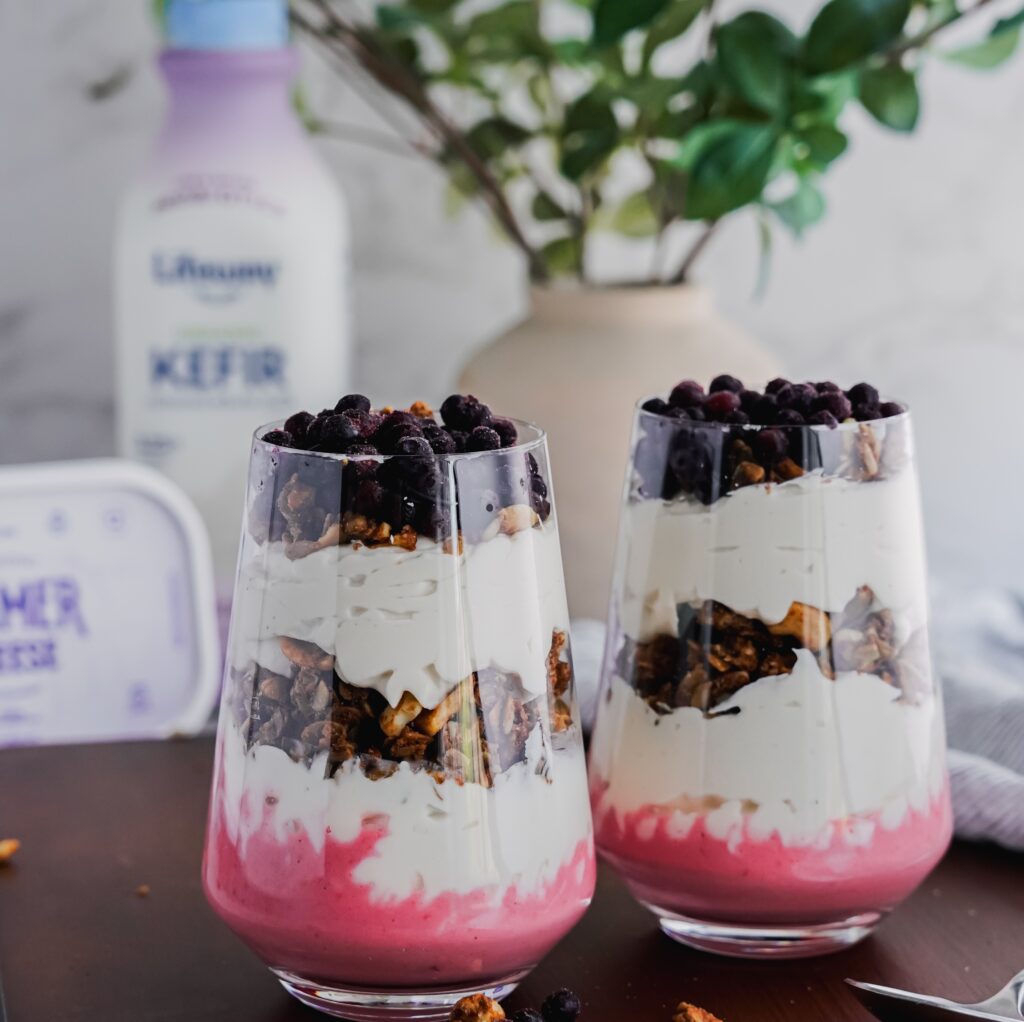Kefir and yogurt are both cultured dairy products, but don’t be fooled… they’re not the same! While both are cultured, Lifeway Kefir contains more probiotics and is fermented for a longer period of time resulting in a higher count of colony-forming units (CFU) – and by a landslide. Some commercial yogurts don’t actually contain probiotics because they are pasteurized after fermentation.
Pasteurizing milk before fermentation is important to prevent food borne illnesses from occurring, however, it’s vital that fermentation occurs after the pasteurization process for the probiotics to survive since the heat process used during the pasteurization of milk doesn’t allow them to. This is why Lifeway only pasteurizes the milk we use for our kefir products before fermentation allowing all the probiotics to remain alive and active once they’re consumed.
While only two strains are necessary to produce yogurt, it’s important to always look for the “Live and Active Cultures Seal” to verify they actually contain live and active probiotics. Some Greek and organic yogurts may contain probiotic cultures used to produce the yogurt, but they still don’t have the high CFU count of Lifeway Kefir—not even close, actually.
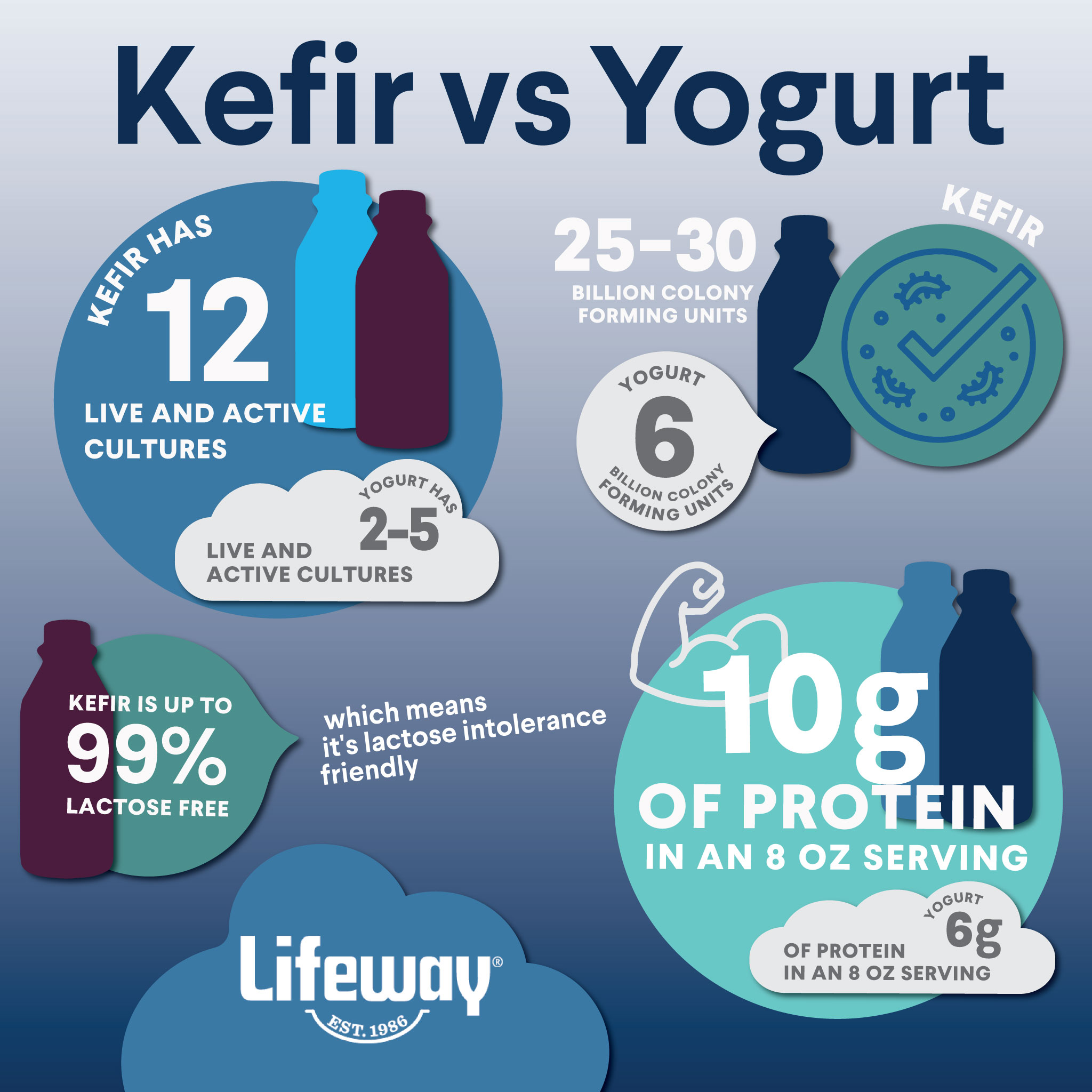
Probiotics: Kefir vs. Yogurt
When it comes to nourishing your microbiome and supporting gut health and immunity, kefir is a much more affordable option than yogurt thanks to its higher probiotic and CFU count. Lifeway Kefir is made with 12 live and active probiotic cultures and contains a minimum of 25-30 billion CFUs with some of our offerings containing up to 50 Billion CFU. Whereas yogurt often contains only 2-5 live and active cultures and only on average around 6 billion CFUs. Of the probiotics, kefir contains a mix of friendly yeast and bacteria cultures, which is unique to kefir and makes it even more diverse than yogurt. Kefir is also fermented 14 to 18 hours after pasteurization, which is much longer than yogurt, resulting in a creamy, pourable texture with a tart and tangy flavor.
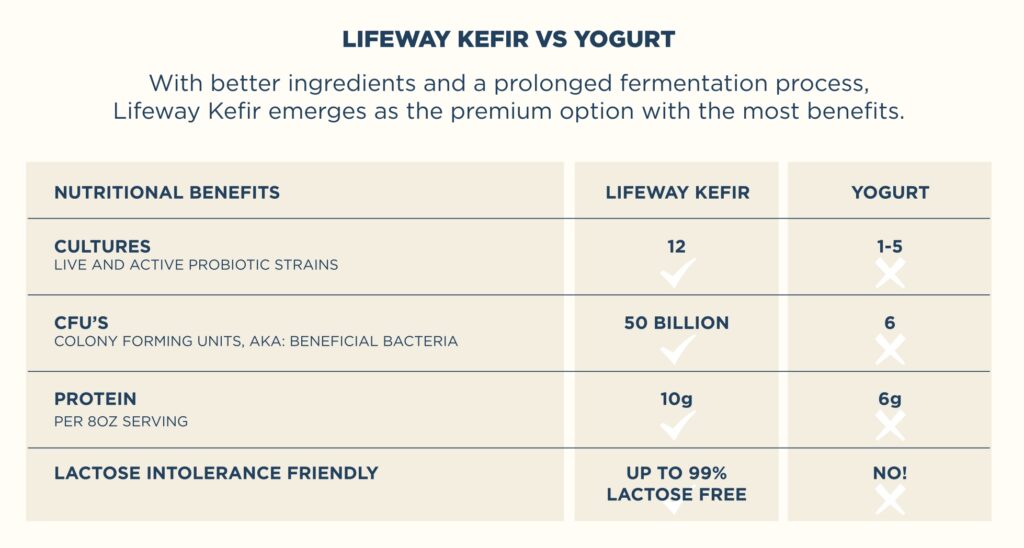
Protein and Nutrients: Kefir Vs. Yogurt
Greek yogurt is a popular yogurt that advertises itself as being high in protein, but some valuable nutrients are lost through the straining process, including calcium, potassium and some probiotics. Lifeway Kefir isn’t strained, making it a great option to take in as many natural nutrients in cultured milk as possible. Lifeway Kefir is an excellent source of calcium, and is also an excellent source of vitamin D, something most yogurts lack. Per 8-ounce serving, Lifeway Kefir contains 10-13 grams of high-quality protein (depending on the variety) while most commercial yogurts that aren’t strained (non-Greek) may only contain 4-6 grams of protein per 6-ounce serving. In addition, Lifeway Kefir’s long fermentation process enriches the content of B vitamins, vitamin K, folic acid, calcium and amino acids.
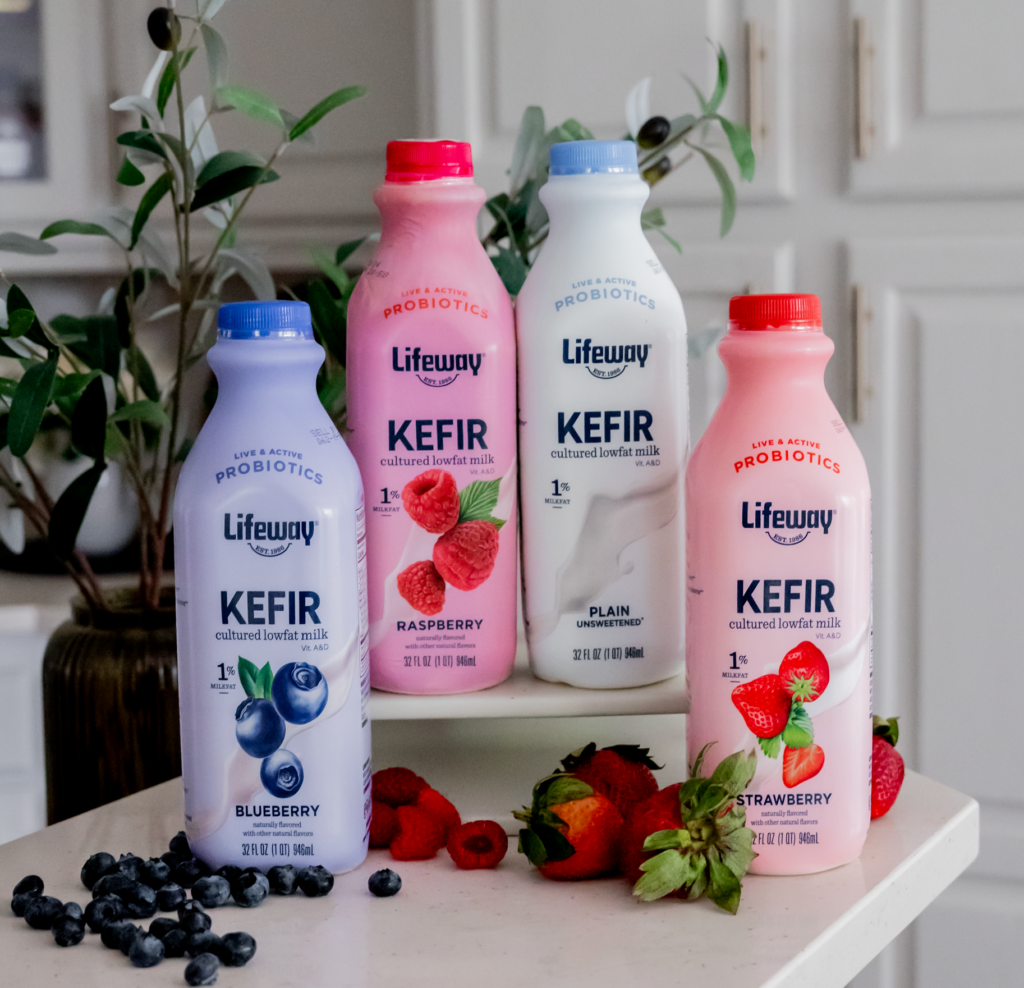
Sugar Content: Kefir Vs. Yogurt
Lifeway’s sweetened varieties only contain at most 1 gram of added sugar per ounce with some varieties containing less, whereas some commercial yogurts may have as much as 4-9 grams per ounce. We only use unrefined, pure cane sugar to lightly sweeten our flavored kefir, never use artificial sweeteners or flavors, and if you’re looking for unsweetened kefir, we have plenty to choose from! Plain varieties of Lifeway Kefir with no added sugar include our Low-fat Plain, Whole Milk Plain, Organic Low-Fat Plain, and Organic Whole Milk Plain kefir that are are all excellent choices for those who wish to avoid added sweeteners.
Lactose: Kefir Vs. Yogurt
Despite not being strained, Lifeway Kefir is up to 99% lactose-free or completely lactose-free, depending on the variety. While many people with lactose intolerance can tolerate Greek yogurt, not all other commercial yogurts are low enough in lactose to be well tolerated. Lifeway Kefir’s unique fermentation process results in a lower lactose count since the beneficial probiotic cultures “eat” most of the milk sugar (lactose) during the process. This makes kefir easy to digest, even for many people who don’t normally tolerate lactose well.
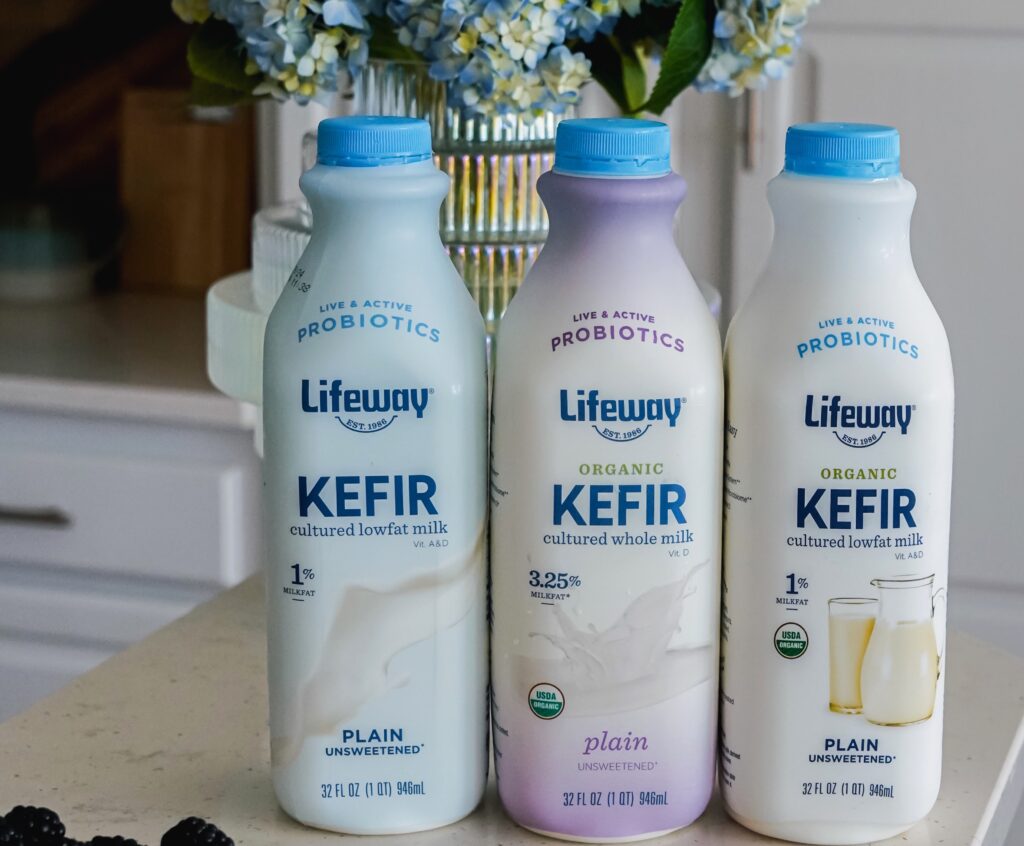
Bioactive Peptides: Kefir Vs. Yogurt
This is a relatively new term to most people, but you’ll likely hear much more about the benefits of peptides in kefir soon. Peptides are milk proteins that are broken down during the fermentation process, and because kefir has a long fermentation, it produces far more peptides than yogurt. The peptides in kefir are being touted in research for their beneficial properties. They are being studied for their antimicrobial, anti-inflammatory, antihypertensive and antioxidative properties to support immune, cardiovascular, metabolic and neurological health.
How to Use Lifeway Kefir
Lifeway Kefir is incredibly versatile; you can pour it over cereal or oatmeal instead of milk, use it in a smoothie, make frozen kefir (so fun!), bake or cook with it, and so much more. Dressings, dips, and appetizers are some favorites we love. Need a little recipe inspiration to get started? Check out all our recipes and see all the latest healthy eats we share on Instagram, Facebook, and Pinterest. You can also find where to buy our kefir and learn more about kefir!
